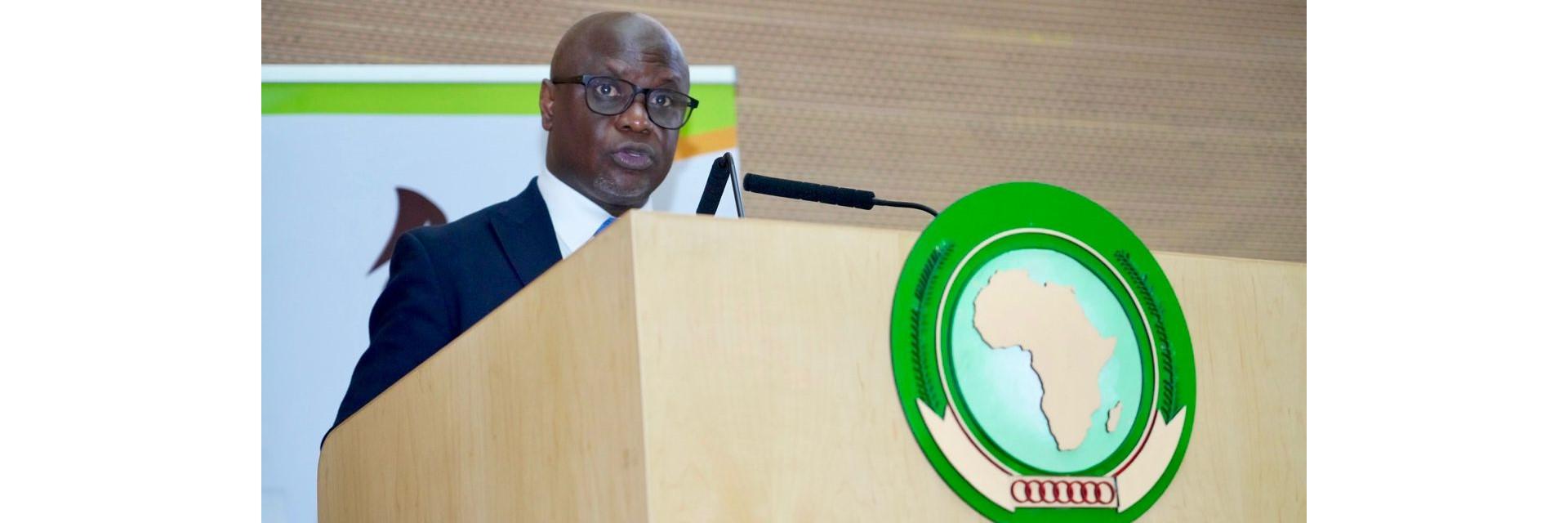ECA REMARKS DURING THE CLPA 2023 OPENING CEREMONY
21st NOVEMBER 2023
Ladies and Gentlemen,
On behalf of the Executive Secretary of the Economic Commission for Africa, Mr. Claver Gatete, it is my great honour to address the distinguished audience at this fifth edition of the Conference on Land Policy in Africa.
Let me express my gratitude to the African Union Commission and the African Development Bank for our longstanding partnership in support of the African Union Agenda on Land. To the Minister of Uganda and indeed all the representatives of governments here, I thank you for your continued commitment and efforts to reform the land sector: What we do at the continental level only comes to fruition when applied at national and local levels, with the support of many stakeholders and partners represented here.
Ladies and Gentlemen,
The theme of the Fifth Conference on Land Policy in Africa (CLPA), promoting sustainable land governance in Africa for accelerated implementation of the African Continental Free Trade Area (AfCFTA), is at the heart of many of us as we explore ways in which the African citizenry can maximally benefit from their land and its resources by taking advantage the opportunity that enhanced trade brings, to boost sustainable and inclusive development and environmental stewardship.
The AfCFTA holds the potential to lift 30 million people out of extreme poverty, boost Africa’s income by USD 450 billion, while connecting 1.3 billion people. This is significant in view of the youth bulge and opportunities of an ever-accelerating digitalization, including in land-based sectors such as agriculture. Through several commitments, Africa is committed to agro-industrialisation for value addition and economic diversification, as a basis for enhancing the benefits of the AfCFTA. Through digitalization therefore, there is great potential for the youth to tap into the growing agriculture and agribusiness sector, projected to be US 1 trillion by 2030. This is a low hanging fruit, given most of Africa’s youth, about 40-60% of them, are already engaged in agriculture and agribusiness.
Ladies and Gentlemen,
Sound land governance systems are essential to facilitating youth, women, communities, and the private sector to engage and benefit from AfCFTA and
digitalization. Good land governance promotes secure access to land, and creates an enabling environment for investments that are key to unlocking the productive capacities of Africa. Good land governance will support agro-industrial parks, infrastructure and renewable energy, all needed ingredients for industrialization and trade.
At the regional level, harmonisation of land and related policies in light of the protocol on investment and other trade related protocols will facilitate cross border movement of people, regional investments and trade. Continental and regional institutions are therefore key to ensuring coherence in regional aspirations for trade and investments; and underlying policy and regulatory environment, including in the land sector.
Ladies and Gentlemen,
Inclusive digital technologies can support land and trade policy-making processes through data driven decision making. They can identity opportunities for reform, job creation, climate change mitigation and adaptation, and food needs.
With population growth and rapid urbanization, the food industry will continue to grow in the coming years. Investmenting in the capacity of farmers to increase production will be vital. Equally important will be investment in research institutions to develop models of appropriate and sustainable agro-processing, technological innovations and implementation of land and agriculture policies that are forward looking.
As I conclude, Ladies and Gentlemen
Let me invite you to be innovative in seeking solutions that impact the livelihoods of youth, women and smallholder producers: After all they constitute Africa’s largest private sector and an integral part of our quest to find climate smart solutions. How can land policies and land administration be more inclusive and guard their interests? How can land governance secure land rights and advance agro-industrialization to increase productivity and value addition in land based sectors? How can land governance enhance economic integration? Are there potential unintended consequences of increased trade on the vulnerable groups that depend on the land-how can land policy development and implementation mitigate these impacts.
I hope that the 2023 Conference on Land Policy in Africa will come up with recommendations and a call for action that can contribute to the economic and
social transformation of Africa through inclusive land reforms and intra-Africa trade.
With those remarks, I am happy to declare the 2023 conference on land policy officially open.

